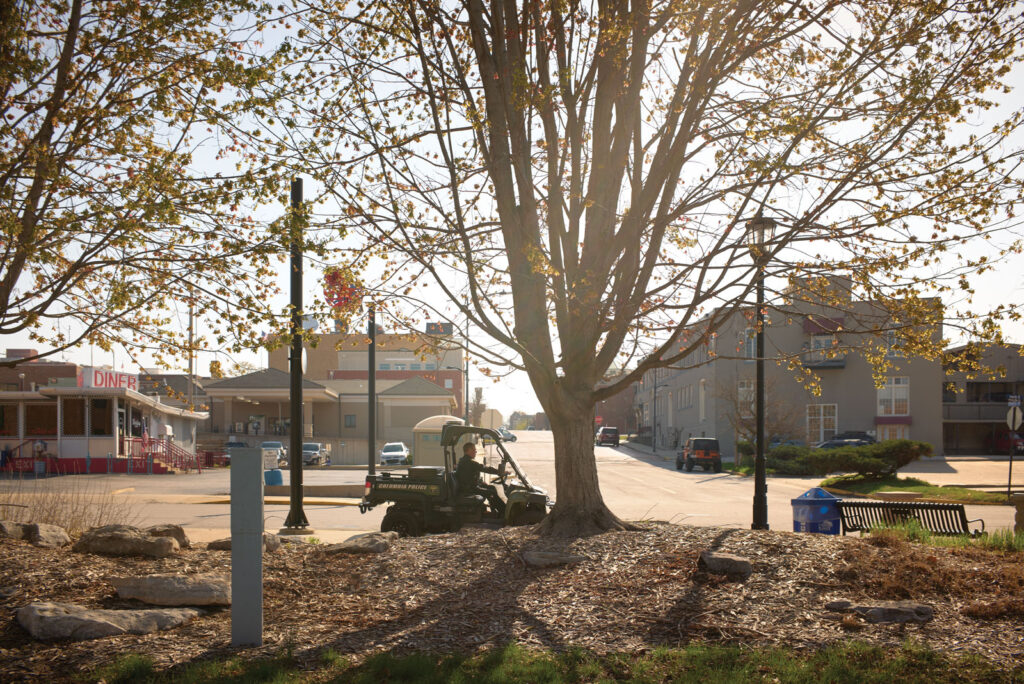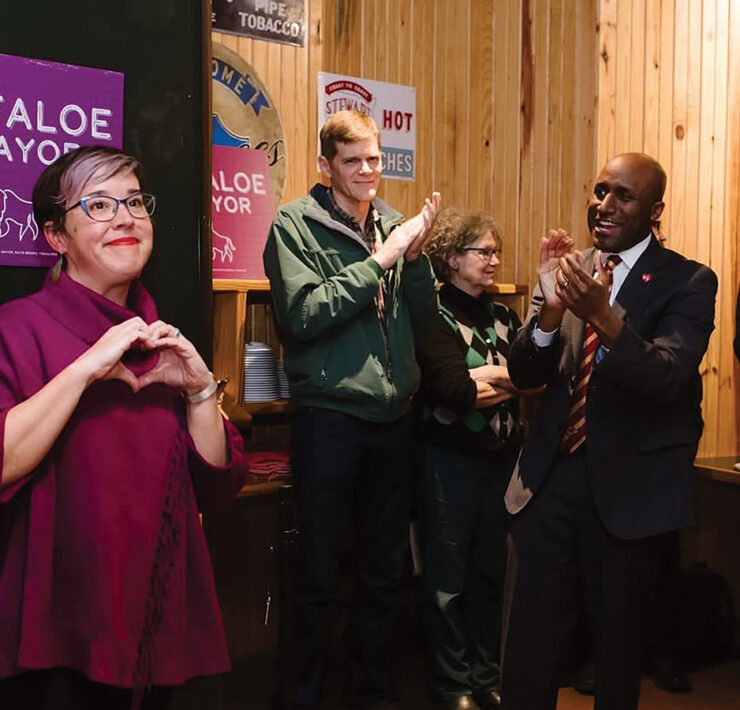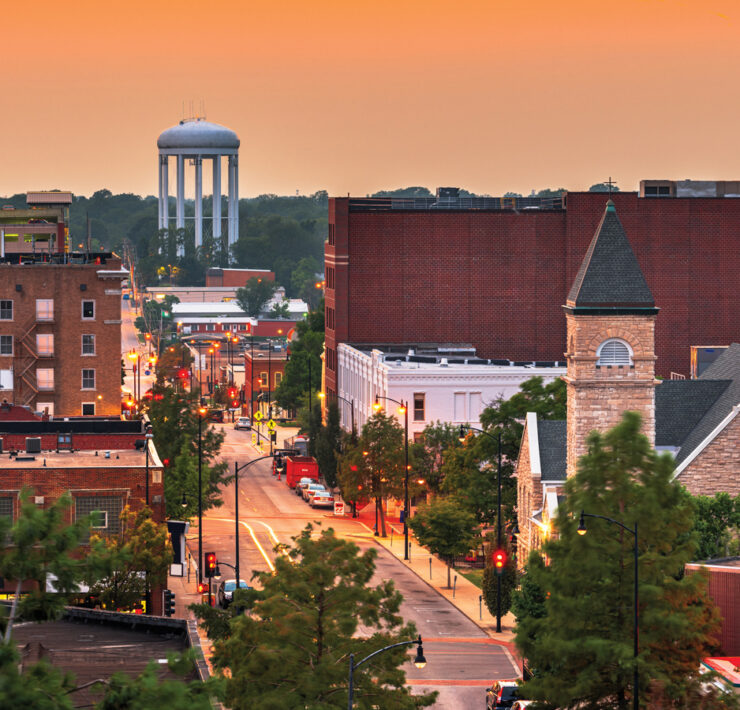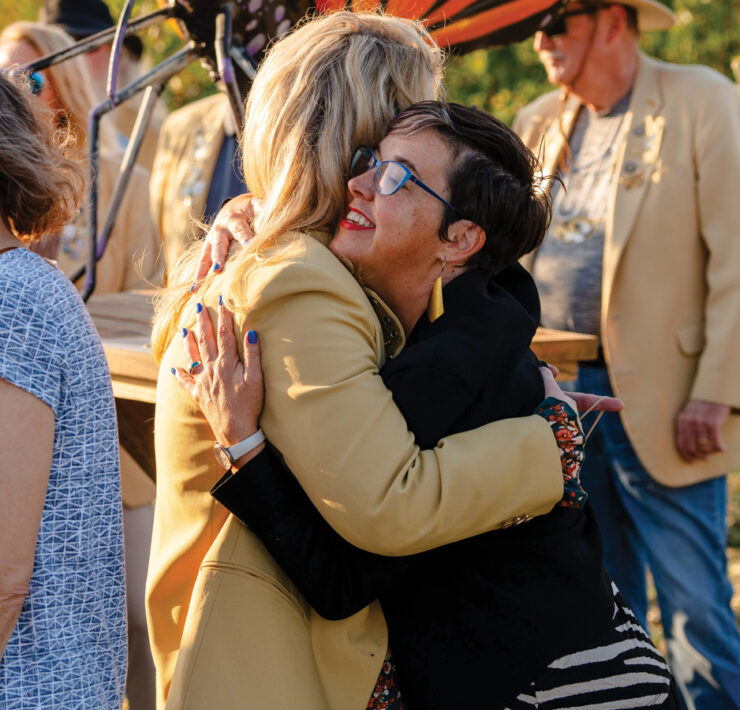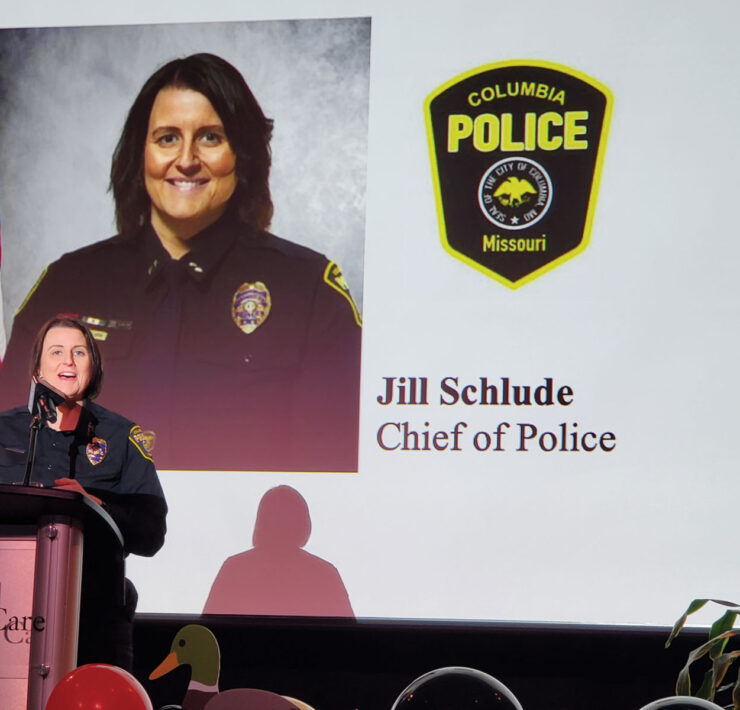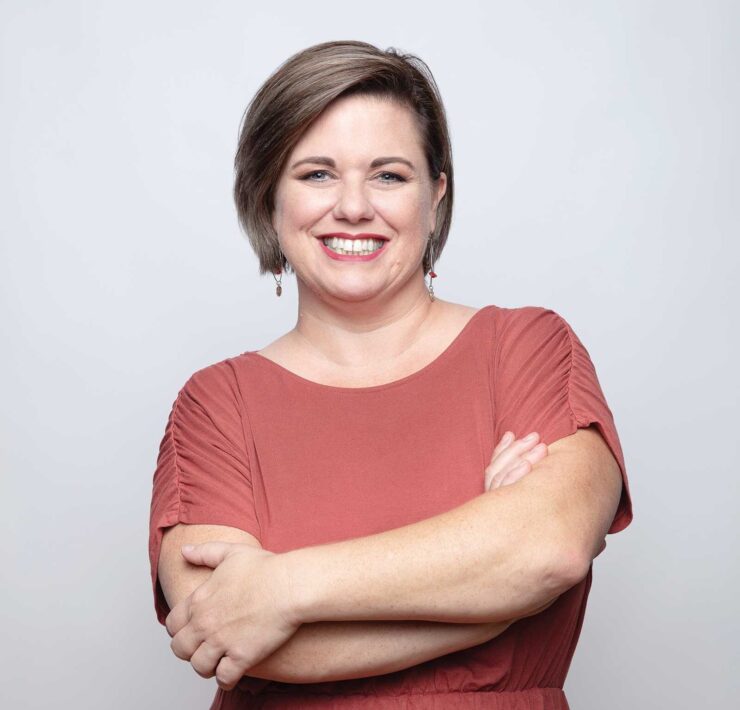A Day in the Life of a Homeless Outreach Officer
- "A Day in the Life of a Homeless Outreach Officer" originally appeared in the May 2025 "Downtown" issue of COMO Magazine.
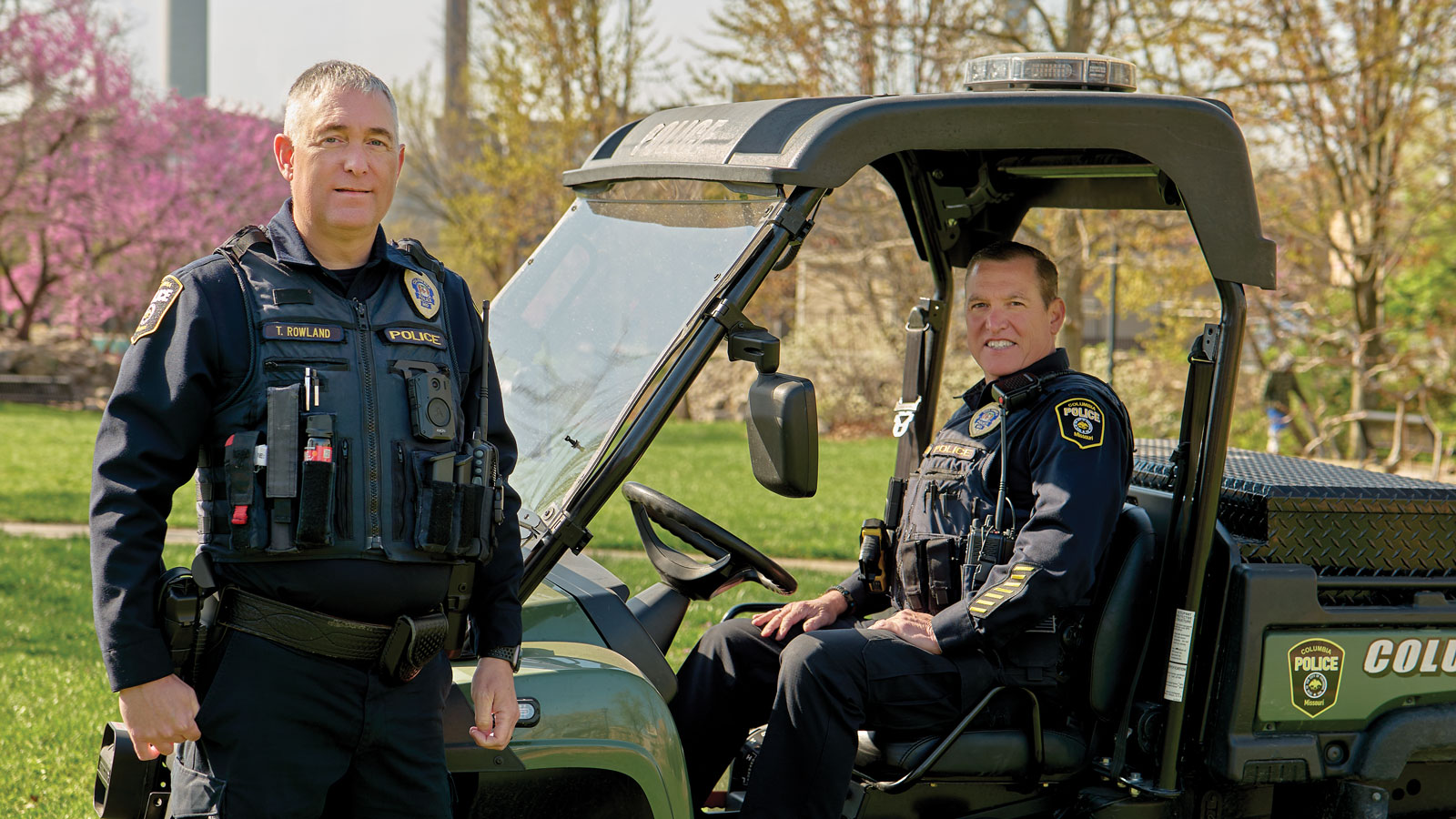
Officers Brad Anderson and Todd Rowland make up the Columbia Police Department’s Homeless Outreach Team (HOT). Photos by Keith Borgmeyer.
COMO Magazine’s “Day in the Life” series features Columbia pros (and amateurs) who do their part to keep the globe spinning and make life better for the rest of us — often in ways we don’t realize. We especially appreciate opportunities to tell our readers more about individuals and organizations that most of us aren’t familiar with.
Please give us a brief description of your position and responsibilities.
Brad: Assist the community in dealing with homeless issues both private and public. Conduct both outreach and law enforcement activities. Assist homeless individuals — those who want help — by referring them to different types of service through the DIVERT program.
Todd: My primary responsibilities include assisting the homeless population with obtaining services through our social services partners or by using DIVERT. Also conduct law enforcement duties on private and city or state-owned land when issues of homelessness occur.
What’s your background: where you grew up, went to school, how connected were you with Columbia before joining the CPD?
Brad: Fort Madison, Iowa; U.S. Army. Bachelor of Science in Criminal Justice from Missouri Southern State University, Joplin, Missouri.
Todd: I was born in Kansas City, Missouri and grew up in Jefferson City. I went to Helias High School and Columbia College. Prior to my job in law enforcement, I would visit occasionally but had no ties to the city.
In what ways do your homeless outreach duties differ from other areas of police work in Columbia?
Brad: Our focus is mainly on homeless issues in Columbia, but when needed we assist other officers with patrol calls.
Todd: A regular patrol officer deals with a variety of calls for service, whereas we mainly deal with the homeless population and their needs.
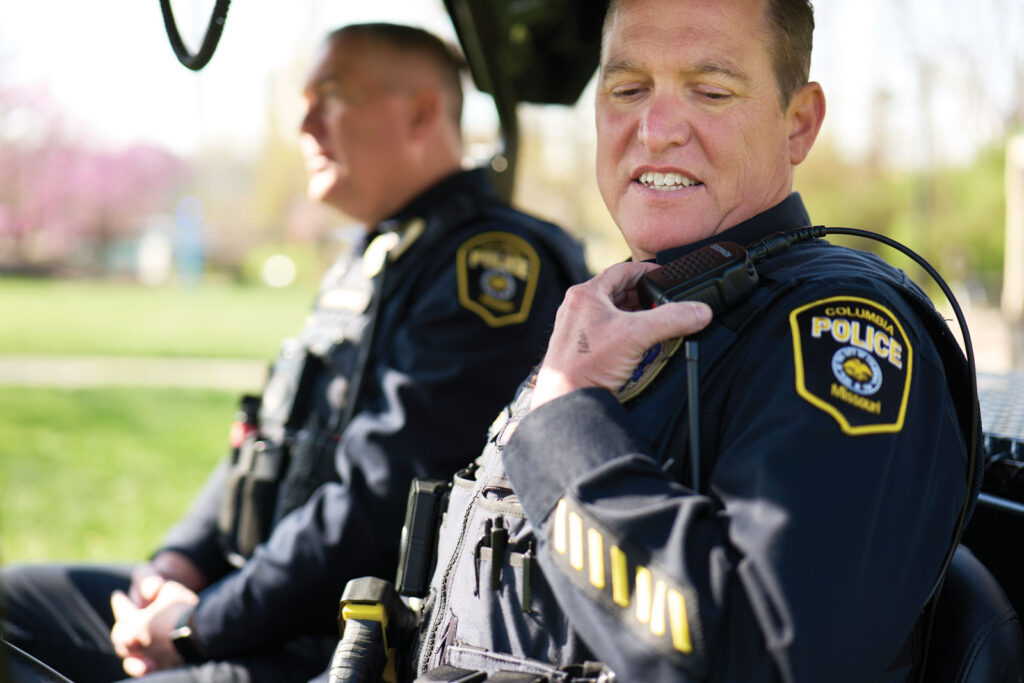
It’s our understanding that you help homeless individuals connect with services through the DIVERT program. Can you explain what that is?
Brad: DIVERT is a web-based application. Once a subject is identified and is wanting assistance, their information is entered into the DIVERT program. We identify what a subject’s needs are, like housing, mental health resources, drug or alcohol abuse support, medical care, and so on, and we enter this information into DIVERT. The information is then forwarded to the city of Columbia Department of Public Health & Human Services. A representative from that department then reaches out to the subject and refers them to various organizations for assistance depending on the need.
What does a “typical” day look like for the homeless outreach team? (We’re guessing not much is “typical,” but maybe it is?)
Brad: We make daily checks of areas throughout Columbia where homeless subjects are known to congregate or camp. We take complaints of homeless subjects trespassing on both public and private property. We take law enforcement action when necessary.
Todd: Checking areas where prior complaints of homeless issues have been made. This includes taking complaints from private property owners, as well as from city and state community partners.
How do you make the distinction between panhandling and being homeless?
Brad: From our experience, most of our panhandlers are homeless. There are a few who will panhandle for a short period of time and then move on to where they are trying to get to.
Todd: From my experience, most if not all of the people I have spoken to that panhandle are homeless. There is only maybe one instance of a couple that I have had contact with that panhandle but weren’t homeless.
Give us an example or two of challenges or situations that required innovative or outside-the-box thinking to come up with solutions.
Brad: I cannot help someone who is not willing to help themselves. It is a vicious cycle. We are running into the same subjects over and over again. These individuals have tried to utilize the many services provided, but prefer to stay homeless because of the independence.
Todd: It is challenging every time you are dealing with someone who is homeless, and they don’t want help but continue to violate the law. That is the biggest challenge I have seen. There are some who will use every excuse to not use the resources or services we have to offer them, but continue to do the things we ask them not to do.
Tell us about something that happened that made your day; something that inspired or encouraged you.
Brad: Recently one homeless subject who has been living on the streets for over twenty years finally got housing.
Todd: We have had a few people that we have dealt with for many years get housing and guardians that are going to help them stay off the streets.
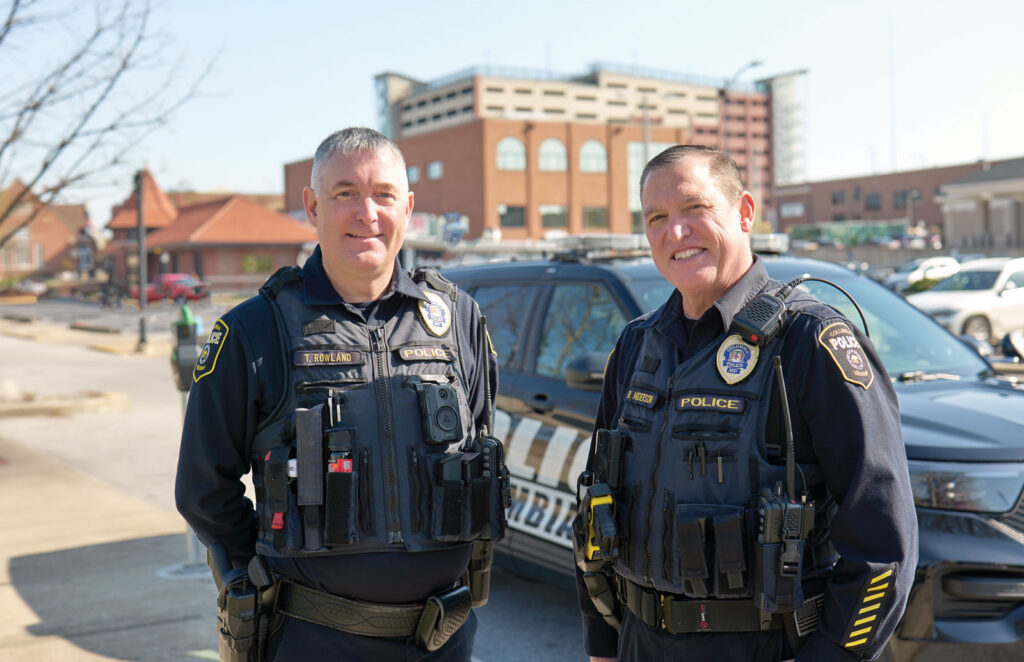
What were your career aspirations? What did you want to be when you were growing up, and when did you find your career path?
Brad: I initially joined the U.S. Army to be in satellite communications, but there were no openings, so I went with my second option and eventually became a military police officer. It has been my career path ever since then. I have been a police officer for more than thirty years — twenty-four of them with CPD.
Todd: I grew up wanting to be an athlete. I grew up loving sports, especially hockey. But I soon realized a career in the NHL was not going to happen. As I got older, I had the thought that working in law enforcement would be fun, so I explored that option.
What’s the first distraction that came your way today?
Brad: I wouldn’t call it a distraction. I was checking some private property for a reported homeless camp and found a couple of subjects hidden at the end of a road living in their vehicle. They recently lost their home, and I DIVERT’d them.
THIS is non-negotiable. You won’t be distracted from doing THIS. What is THIS?
Brad: I won’t get distracted while backing up another officer on a call. This is all about officer safety in this profession.
Todd: Doing my job and helping my fellow officers.
What attracted you to working for the city of Columbia?
Brad: Larger organization, different opportunities, pay, and retirement.
Todd: I felt it was my best opportunity of the choices I had for law enforcement at the time I went through the academy.
What do your friends not understand about what you do?
Brad: The patience it takes to deal with difficult people.
Todd: How difficult police work is and that they probably don’t understand what the job is like unless they were to have actually done it.
What do you do to unwind in the evening, and what time is bedtime?
Brad: I spend time walking my dogs, watch a little TV, or play video games every once in a while. 9:30 p.m. is bedtime.
Todd: I spend time with my wife and the dogs. Watch sports or movies, etc. I usually go to bed around 10:30 p.m.
